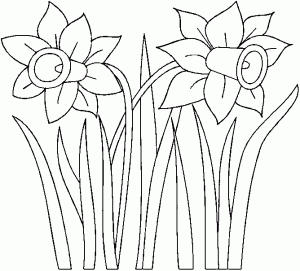MONTHLY BLOG 159, BUT NOW SPRING IS COMING AND IT’S TIME FOR FRESH PLANS
If citing, please kindly acknowledge copyright © Penelope J. Corfield (2024)

| Daffodils © Clipart 2024 |
Good things can happen at any time of year. As can bad ones. But there is something basic about the cyclical nature of the seasons in Britain that encourages a degree of seasonality in human thought patterns. The perceptible lengthening of the daylight hours, the sight of radiant blossom on the trees, and the budding of the first daffodils encourage a sense of renewal. Time for fresh plans!
True, we have already discovered greenfly on the first green shoots of leaves on the rose bushes … but that’s also part of life.
I don’t want to recount all the details of my current plans – for writing books, planning more books, giving lectures, and organising various good projects – but I am happy to record the springing of renewed activity.
‘There’s no time like the Spring/ When life’s alive in everything …’ (Christina Rossetti).1 ‘I am amazed at this Spring, this conflagration/ Of green fire lit on the soil of the earth, this blaze/ Of growing …’ (D.H. Lawrence).2 ‘Spring, the sweet Spring, is the year’s pleasant king/ Then blooms each thing … / Cold does not sting; the pretty birds do sing …’ (Thomas Nashe).3 ‘Now do a choir of chirping minstrels bring/ In triumph to the world, the youthful Spring …’ (Thomas Carew).4 ‘If ever there were a Spring day so perfect/ So uplifted by a warm intermittent breeze/ That it made you want to throw/ Open all the windows in the house/ And unlatch the door to the canary’s cage/ …/ Well, today is just that kind of day’. (Billy Collins, abridged).5
Of course, the poets are not slow to stress that Spring is transient. And to point out that the beauty of Spring offers a stern reproach to the ugliness that too often mars human relationships with other humans. Think of wars; famines; drastic material inequalities; community hatreds; territorial disputes; the misuse of creative technologies; ecological degradation and species loss; the growing climate crisis – and (so far) the failure of international political organisations to cope with that litany of horrors.
Such thoughts are more than enough to wipe the smile off the face of anyone who is overly complacent.
At the same time, however, I’ve enjoyed the time just spent, finding a diverse range of poems, with diverse emotions, about the coming of Spring. I am enjoying the real thing all around us as well. And, yes: the turning of the seasons brings a message. To quote Goethe: ‘We must always change, renew, rejuvenate ourselves’. That includes our civic commitments as well as our private projects. And now is a good time to start the renewal! It’s Spring!
ENDNOTES:
1 C. Rossetti (1830-94), ‘Spring’, first pub. 1862; available in C. Rossetti, The Complete Poems, ed. R.W. Crump and B.S. Flowers (Penguin, 2001), p. 28.
2 D.H. Lawrence (1885-1930), ‘The Enkindled Spring’, first published 1916; available in D.H. Lawrence, Complete Poems, ed. D. Ellis (Penguin, 1957).
3 T. Nashe (1567-c.1601), Spring, the sweet Spring’ is a song from his play Summer’s Last Will & Testament (1600).
4 T. Carew (1595-1640), ‘The Spring’, first published in a collection of poems in 1640.
5 B. Collins (b.1941), from his poem Today, first published in 2000.
For further discussion, see Twitter
To read other discussion-points, please click here
To download Monthly Blog 159 please click here


